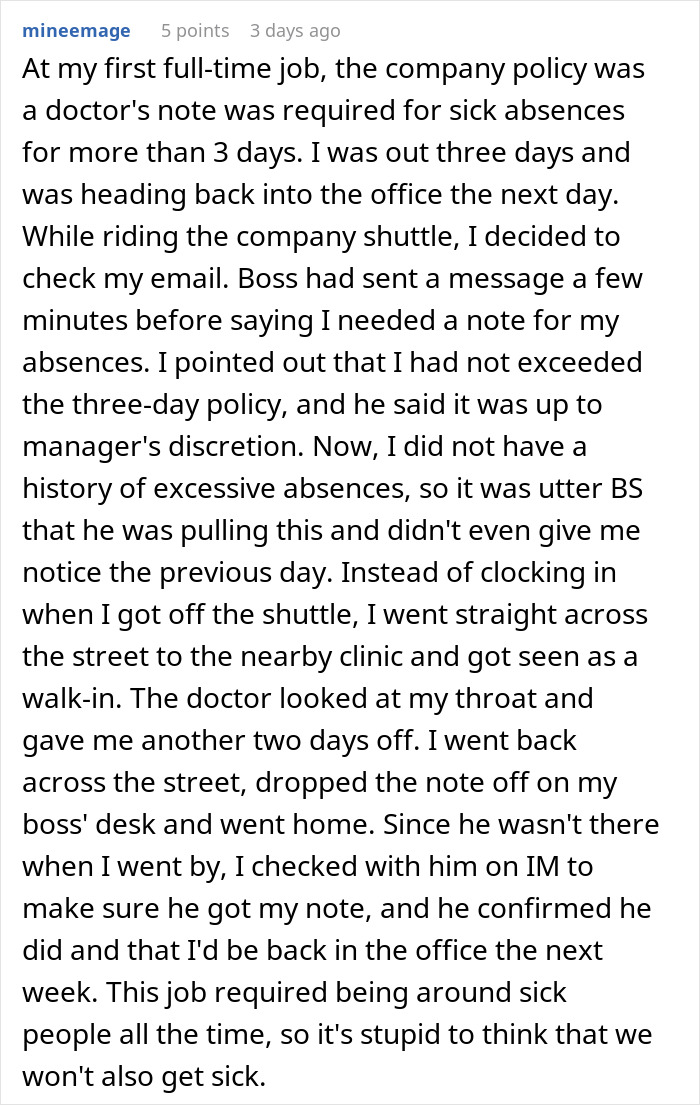For many workers in the U.S., taking a day off when you’re sick sounds daunting. In one survey, 89% of office employees said they have worked while they were ill. There are many reasons people do this, from feeling insecure and thinking coworkers will assume they’re faking it to a boss pressuring them to come in.
Like the boss in this story did. When the author sprained her ankle and asked for half a day off, the boss refused, downplaying her injury and saying she needed to prove it with a doctor’s slip. So, she did just that and, to the boss’s dismay, got a whole week off.
A woman sprained her ankle and asked her boss for a day off to rest

Image credits: Kindel Media / pexels (not the actual photo)
When her boss got mad, she maliciously complied, went to the doctor, and got a whole week off instead


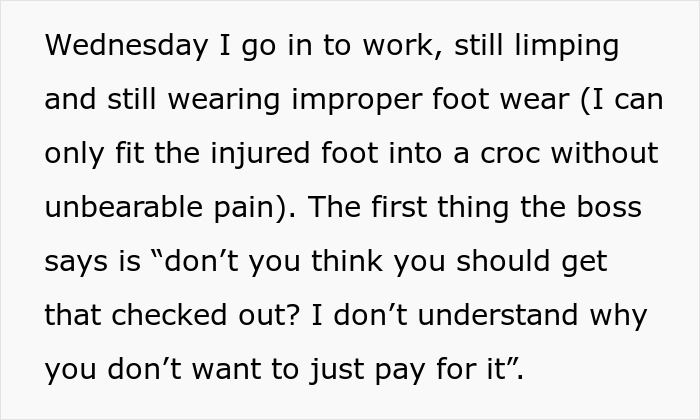



Image credits: stockking / freepik (not the actual photo)
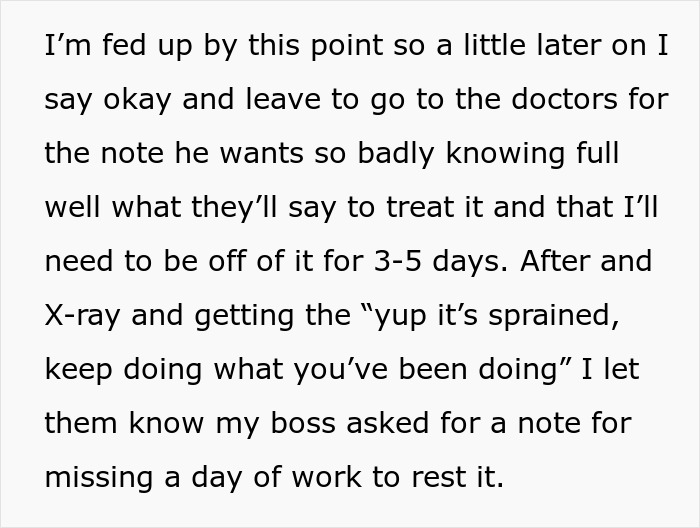


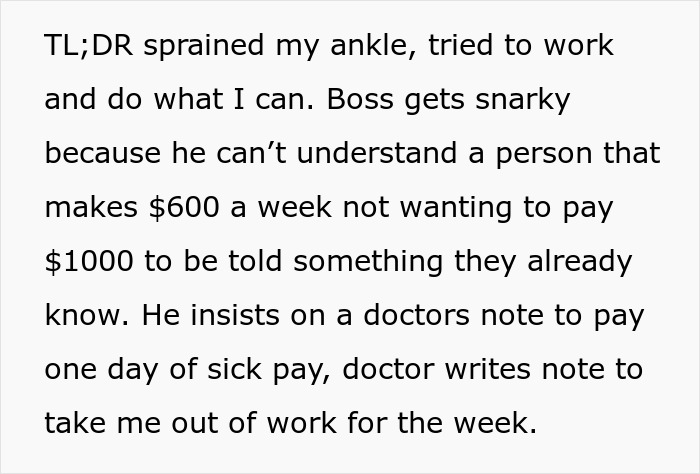
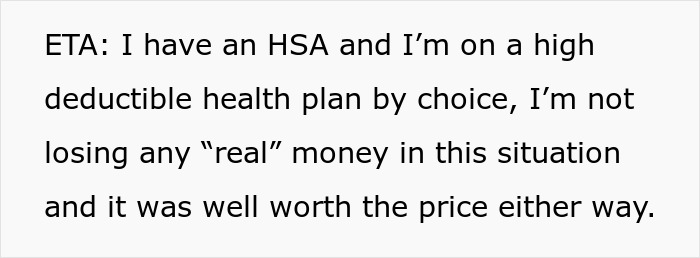
Image credits: floatingawaste
Many employees feel too guilty to take a day off when they’re not feeling well

Image credits: Marcus Aurelius / pexels (not the actual photo)
Cases like these might happen more often than we’d like to think. In many workplaces, workers are reluctant to take sick days. And it’s not an exclusively American problem, either. One recent survey found that 59% of workers in the UK, too, came to work when they were feeling sick.
And financial reasons are not even at the top of the list of reasons why. The majority of respondents said they go to work even when they feel under the weather because of guilt. 26% claimed they would feel guilty about their coworkers who’d have to pick up the slack.
In the U.S., people also think that their boss and colleagues might think they’re faking the illness. And this is where the bosses come in. According to one poll, 25% of workers also have experienced pressure from their boss or were explicitly asked to work while sick.
LeaAnne DeRigne, associate professor of social work at Florida Atlantic University, told BBC that this mindset might be due to American ideals. “No one’s allowed to be sick. Sickness is weakness,” she explained the thinking. “At the very core of being American is the idea of being a hard worker.”
Indeed, 40% of U.S. workers in the aforementioned poll said they feel stressed when they have to ask for sick time. 39% feel anxious, 35% feel guilty, and 17% are fearful. This signals a very worrying trend: many workplaces might have toxic work cultures where an employee’s health is not a priority.
Toxic workplace culture and people’s tendency to glorify overwork only makes the situation worse

Image credits: azerbaijan_stockers / pexels (not the actual photo)
Many experts are saying this is a problem that’s only going to get worse. What’s more, it’s not just the company culture that’s at fault here. The individuals who are continuously going to work while sick are only digging themselves and others a bigger hole.
Idris Arshad, people and inclusion partner at St Christopher’s Hospice, told People Management that the cause of the issue is a lack of self-care on the employees’ part. “It doesn’t help the individual or the organisation in the long run [and] role models the wrong behaviours, especially if leaders are doing it.”
In a previous interview for Bored Panda, career and leadership coach Phoebe Gavin said that current societal attitudes about work are what make it hard to make systemic changes. “The way we glorify overworking in the US makes it difficult to implement key policy changes,” she explained.
“This culture also impacts people dealing with chronic conditions and health issues. Overworking removes the incentive for companies to enact policies that promote balanced, healthy lives and makes it easier for them to take advantage of workers,” Gavin went on.
Lisa Seagroatt, managing director of HR Fit for Purpose, also told People Management that such a work culture is not sustainable long term. “[It] creates unnecessary stress and anxiety for employees, which then impacts negatively on their mental health and wellbeing, often affecting productivity and engagement in the long run.”
It turns out the boss has a history of not wanting to give time off to his employees




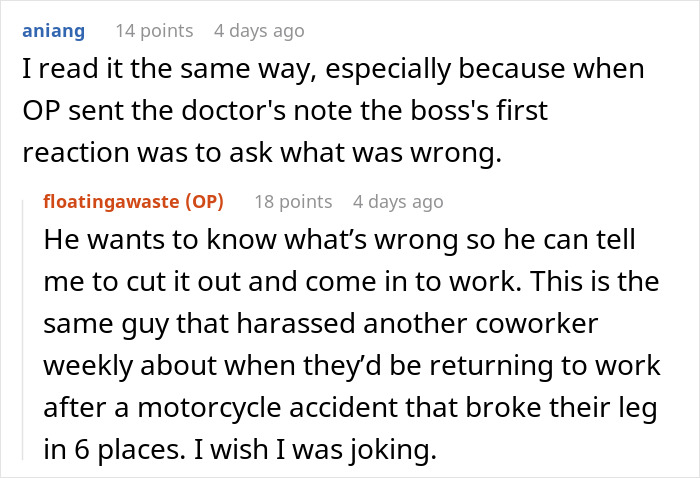
People in the comments reflected on the absurdity of the American healthcare system
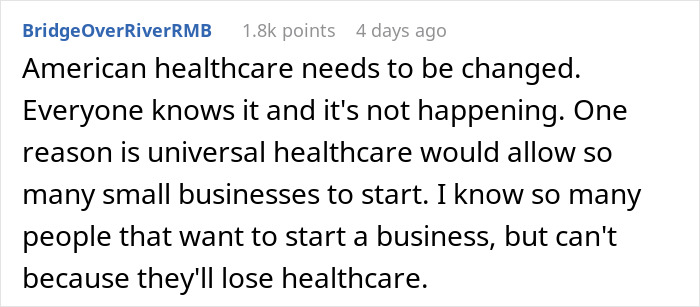


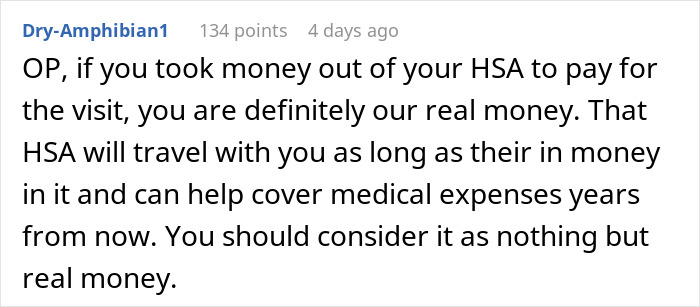





Others shared similar stories with their stern bosses


